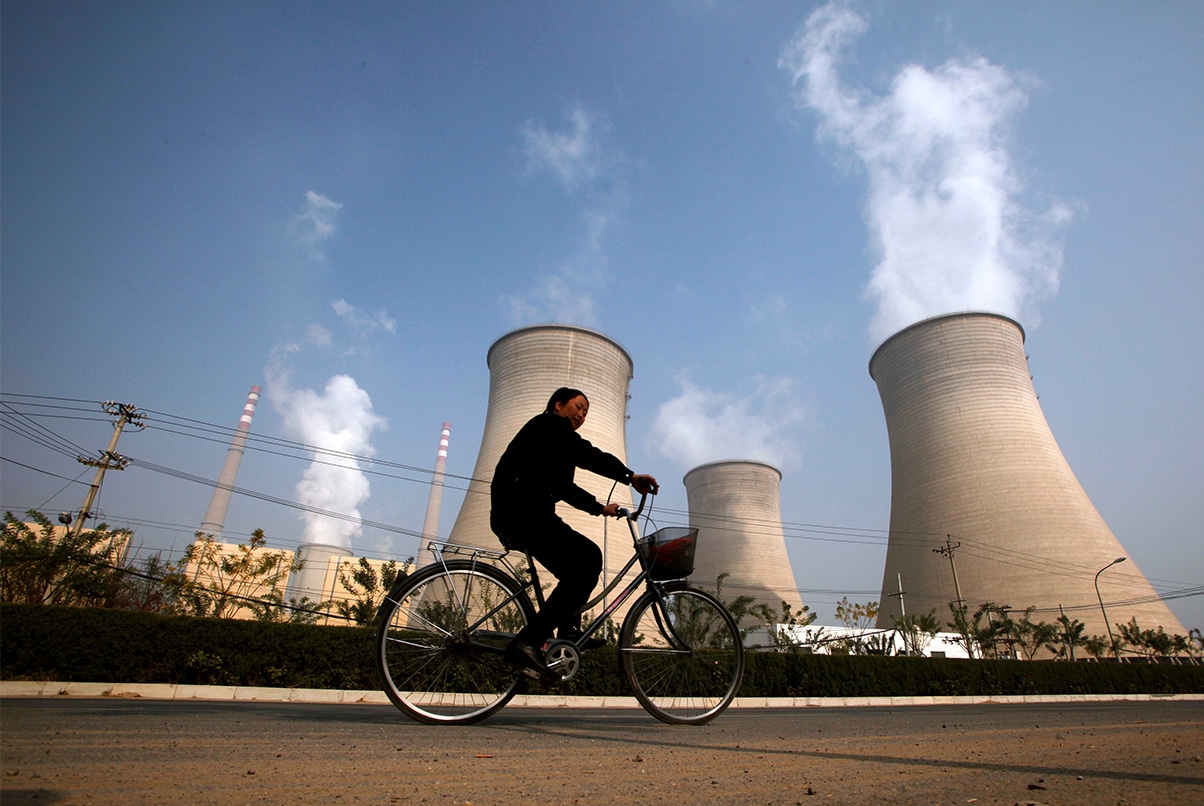- February 25, 2015
Double Impact: Why China Needs Coordinated Air Quality and Climate Strategies
The urgency with which Beijing is tackling air pollution is certainly positive, and such actions will lead to concomitant benefits in curtailing carbon dioxide (CO2) emissions, to a certain extent. But Karplus argues that it would be a mistake to view the current initiatives on air pollution, which are primarily aimed at scrubbing coal-related pollutants or reducing coal use, as perfectly aligned with carbon reduction.
This is not the case, according to Karplus. Air pollution reduction is only partly aligned with CO2 reduction, and vice versa. In addition to air pollution efforts, effective co-control requires a more significant step: a meaningful price on carbon. This is especially so if Beijing is to realize its 2030 pledge. Put another way, air pollution control efforts, while essential, will only take China part of the way toward its stated carbon reduction goals.
One major reason is because while low-cost solutions for air pollution and carbon reduction can overlap, the reality is that co-benefits run out after low-cost opportunities to reduce or displace the fuels responsible for both carbon and air pollution emissions—mostly coal in China’s case—are exhausted. In other words, co-benefits diminish over time as greater reductions are needed, according to Karplus.
Stay Updated with MacroPolo
Get on our mailing list to keep up with our analysis and new products.
Subscribe

